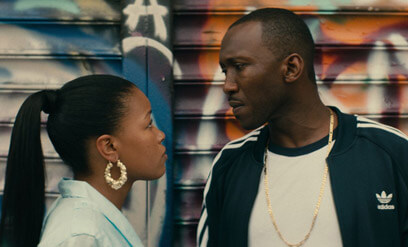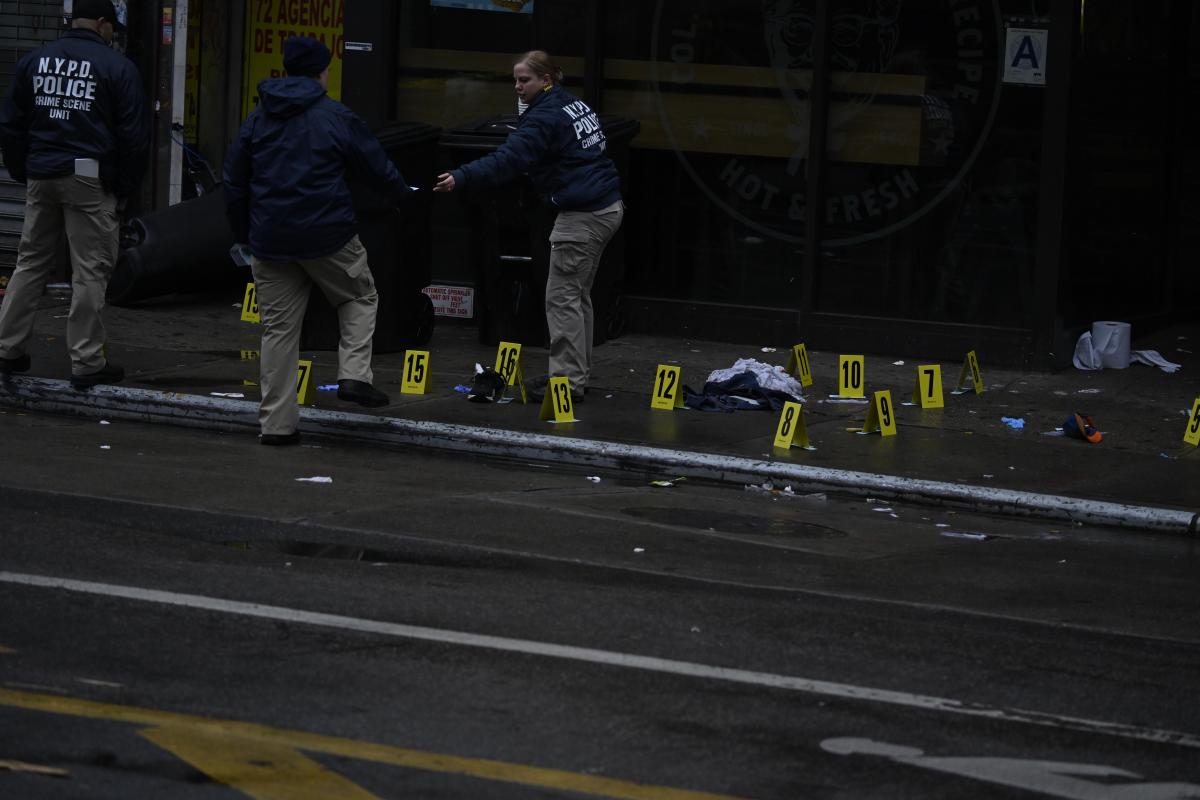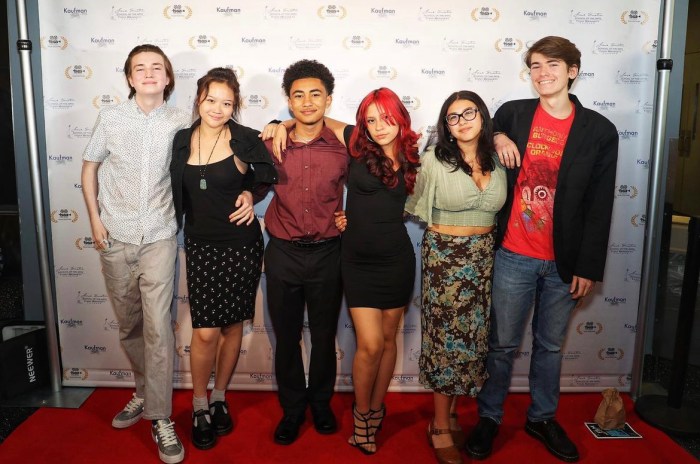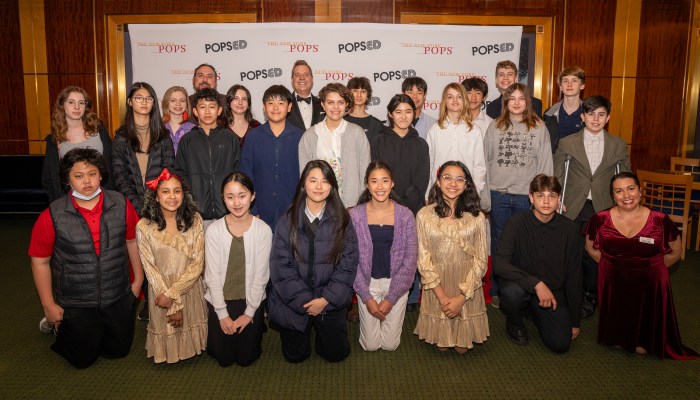By Tammy Scileppi
As the 1980’s rapper MC Shan once put it, the Bridge is where “stars are born.”
Queensbridge, hip-hop’s most storied housing project, hasn’t produced a new generation of famous rappers in almost two decades. But back in the early 80s, when spunky young teen Lolita Shanté Gooden — who called herself Roxanne Shanté (pronounced ‘shan-tay’) — was coming into her own and finding herself as a rising hip-hop star, the Bridge was revered as the heartbeat of the rap universe.
From this tough insular community in Long Island City emerged more hip-hop talent throughout the 1980s and 1990s than anywhere else in the United States. Queensbridge provided the inspiration for the iconic sounds of legendary rappers like Nas, hip-hop duo Mobb Deep, DJ/record producer Marley Marl, and many more. When Shanté arrived on the scene as the most feared battle MC in Queens, her male rivals took notice.
Unable to resist the pounding street vibe reverberating across the Bridge, at age 14 the fierce, ponytailed rapper battled her way to fame, while hustling to provide for her family — she was the oldest of four sisters — and trying to defend herself on those mean streets from a variety of predators.
Before the #MeToo era, many young women who faced sexism and oppression suffered in silence and kept their grievances to themselves. But Shanté managed to find her voice through rapping. She took Queensbridge’s hyper-masculine hip-hop scene by storm and, before long, her battle cry would be heard across its 96 buildings. People knew she could rap circles around anybody.
Back in the day, rapping was like social media, and it was how many teens connected with their peers. Through hip-hop, they’d express raw anger, frustration and hopelessness, with thumping, confrontational beats that mirrored life in the projects.
Shanté, now 48 and living in New Jersey, has recently taken on a new role as executive producer for a moving, hard-hitting biopic about her humble beginnings at Queensbridge, where she was raised by a strong, single mother. “Roxanne Roxanne” premiered in theaters and on Netflix March 23.
The former rapper shared bits and pieces from her past during a phone interview with TimesLedger Newspapers to talk about the movie. “Roxanne Roxanne” stars newcomer Chanté Adams, who Shanté said “did a wonderful job” and may have been destined to play young Roxanne because of her name. Oscar and Golden Globe winner Mahershala Ali played her older love interest, Cross. Nia Long, who plays her mother, became a close friend of the real life Shanté.
The film’s Queens premiere was “incredible,” according to Shanté, who said they wanted to make it available to people who wouldn’t have access to the movie. Among the attendees were women from domestic violence and homeless shelters.
“That’s exactly what I stand for, what I represent. And the movie we felt, was something they needed to see,” Shanté said. “It took place in a wonderful location, a church which had been turned into the Jamaica Arts Center.”
Shanté said she was on set every day during filming to make sure the movie, which took 28 days to shoot at Queensbridge, “had the organic feel that was needed and that the story was told properly.”
“I had a wonderful relationship with the old neighborhood, so we were able to film there without any issues, and I still have friends in the area,” Shanté said.
Though her mom has been living in the south, Shanté said they return to Queens quite often.
Her story, as told by writer-director Michael Larnell, seems to capture that old school hip-hop era which helped ignite her rocky journey to fame as the first commercially successful female rapper.
“I was a battle rapper in the streets, and able to actually make a living doing that before becoming professional,” Shanté said. “I had the title of being the best in the city in 1983. Usually, people from other housing projects would come. I did freestyle, so literally, I just rapped about whatever was around me.”
In 1984, Shanté started making her famous record, “Roxanne, Roxanne.” She continued rapping until she was 22.
Shanté said that growing up in the projects was like growing up in any neighborhood.
“It was family oriented. I had a wonderful home life with my mother, and when you watch the movie, you’ll see that we went through trials and tribulations, our ups and downs, as any family does,” she said. “But we were able to overcome it.”
The young rapper’s big break came when a neighbor who lived on her block saw her doing laundry and called down to her. He happened to be DJ Marley Marl. So, she laid down a seven-minute freestyle and went right back to doing laundry. He then put the music together and came up with the idea for that record.
Shanté would eventually take on her battling male rivals when she recorded “Roxanne’s Revenge” at age 14, a defiant answer record to hip-hop group U.T.F.O.’s LP.
The original U.T.F.O. track — which dissed a girl named Roxanne for being cold and hard to get — ignited the so-called “Roxanne Wars,” a well-known series of hip-hop rivalries during the mid-1980s. Her epic answer record blew everyone away, selling 250,000 copies just in New York, it set off a musical tsunami.
Sadly, the hip-hop sensation had no choice but to walk away at the height of her career.
In an interview with Essen
“The film is just the beginning of so many things to come,” like a possible series, according to Shanté, who said the message she wants viewers to take away from the film is to “never give up on yourself, and you can survive anything.”
“Everyone should follow their dreams,” Shanté said. “You can be a little girl in the projects and still be successful in life.”































